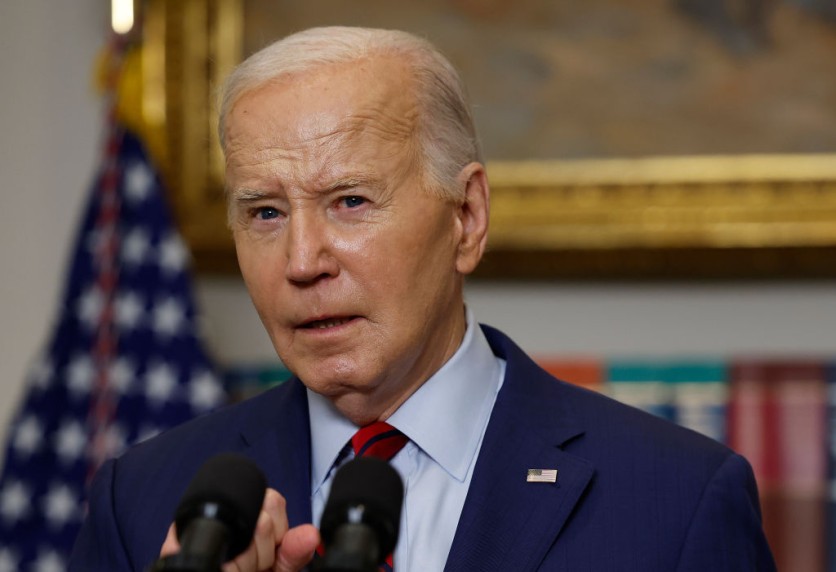Conservatives are advancing a narrative about President Biden, COVID-19, and social media regulating content in public discussions and the Supreme Court.
According to The Verge, a Republican-led House subcommittee will release a report aligning congressional actions with a Supreme Court case. The report investigates claims that the Biden administration violated the First Amendment through Facebook private chats.
The communications are not unlawful unless they constitute coercion, which the US Supreme Court is resolving in Murthy v. Missouri.
Biden Administration Allegedly Coerced with Social Media Companies
In 2021, Meta (previously Facebook), Google, and Amazon internal exchanges showed a strong Biden administration push to battle COVID-19 and vaccination disinformation on their online platforms. The records also show executives' resistance, persuasion, and frustration with the administration's approach.
A WhatsApp message between Meta executives reveals the company's early COVID-19 immunization campaign dealings with the Biden administration. House Judiciary Chair Jim Jordan released the report last year after subpoenaing key tech giants to investigate government pressure and complicity in speech control. The study calls it "coercion" rather than "collusion."
The report's focus on coercion matches the Supreme Court case's main points. Select Subcommittee Ranking Member Stacey Plaskett accused Republicans of staging the event as a "last-ditch effort" to influence Murthy v. Missouri during a recent hearing.

The report shows Meta's top executives' private responses to President Biden's criticism of Facebook's COVID-19 disinformation management. In addition, talks inside Meta show how the corporation deliberated about changing views on the lab leak idea during the COVID pandemic.
The report highlights the legal controversy regarding the US government's use of social media and how it affects the right to free speech in light of the upcoming national elections.
Earlier this year, major digital companies have outlined their content filtering methods due to fears about AI technologies and disinformation.
Big Tech Firms Address 2024 US Election Concerns
According to Forbes, OpenAI, the developer of ChatGPT and Dall-E, has taken steps to avoid political exploitation of its AI technologies. In addition to preventing voter involvement applications, the tech firm will ban politicians, political campaigns, and lobbying groups from utilizing its AI. To check image authenticity, OpenAI wants to develop authentication tools.
Meta, the parent company of Facebook, Instagram, and WhatsApp, will continue its practices in 2024. Labeling state-controlled media, limiting advertisements targeting US users, and banning new political commercials in the last week of the campaign are all part of this. Meta will also demand marketers reveal AI or other digital techniques to create or change political and social content.
Alphabet's Google commits to increasing election-related content transparency. Bard and other generative AI products will answer fewer election-related questions. Another Alphabet company, YouTube, will demand that content providers reveal synthetic or altered manipulations.
Critics point fingers at X, formerly Twitter, for its misinformation management. Despite the controversy, the site promotes Community Notes, a crowdsourced fact-checking program, to combat disinformation.
To ensure election integrity, Microsoft offers technologies to secure candidates' photos, verify material, and advise on AI campaign use. Microsoft also wants its Bing search engine to give authoritative results.
ByteDance owns TikTok, which prohibits political commercials and collaborates with fact-checkers to combat misinformation. Despite its youth appeal, politicians continue to scrutinize the platform.
It is also essential to take note of Microsoft's warning of AI-driven electoral influence, focusing on China. The tech firm's report indicated that China's state cyber agencies are planning to manipulate US, South Korean, and Indian elections this year, per a previous TechTimes report. Moreover, Microsoft's threat intelligence team links these actions to North Korea.
This news follows Microsoft's prior warnings about a Russian-backed hacker gang targeting top officials' email accounts.
The increased use of AI-powered realistic material raises concerns about internet misrepresentation. US and UK charges of China-backed hackers have heightened the threat to journalists, corporations, and politicians.


![Apple Watch Series 10 [GPS 42mm]](https://d.techtimes.com/en/full/453899/apple-watch-series-10-gps-42mm.jpg?w=184&h=103&f=9fb3c2ea2db928c663d1d2eadbcb3e52)


